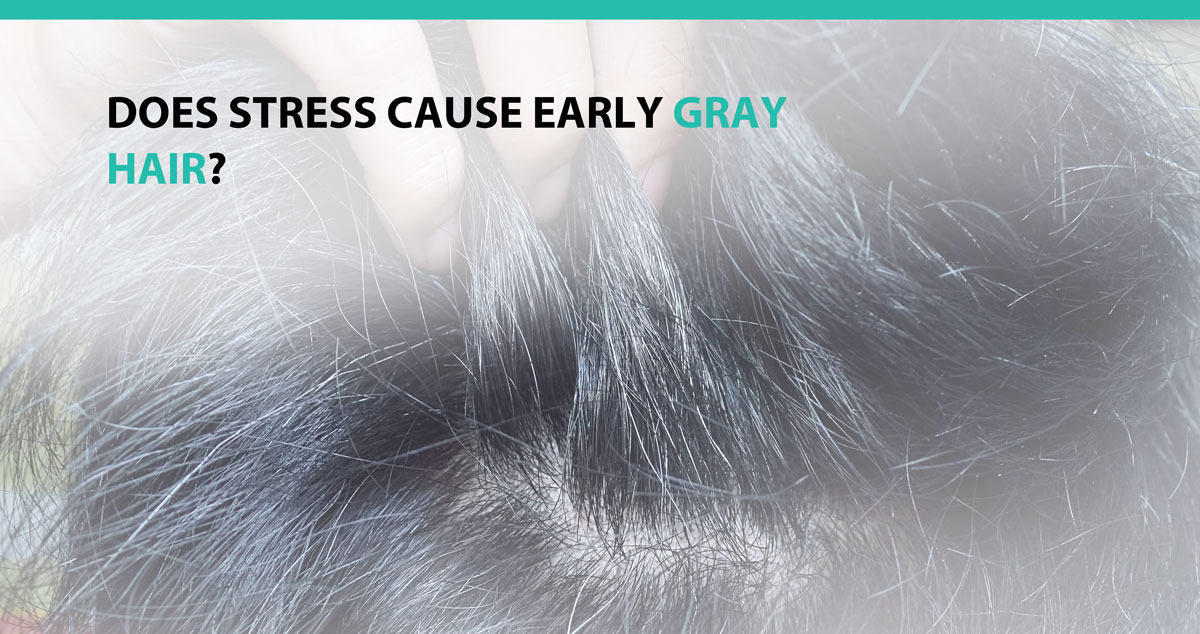
Hair color changes over time due to genetic factors, hormones, lifestyle choices, and environmental influences. While some people experience gradual gray or white hair throughout their lives, others notice early signs of graying before reaching middle age.
Stress has long been known to contribute to hair loss, but recent research suggests that it can accelerate the appearance of gray hair. The exact mechanism behind this phenomenon remains unclear. Still, experts believe that stress triggers the production of free radicals in the body, which damages hair follicles and leads to premature graying.
How Does Stress Cause Gray Hair?
Your hair color is determined by melanocytes, cells that produce melanin. These cells are produced by the melanocyte stem cell found in the hair follicle living at the hair strand’s base. With age, these stem cells disappear, meaning that the hair that regrows after losing melanocyte cells has less color and looks gray.
Every human being is wired to respond to stress as a mechanism to survive danger. As a result, people are confronted by situations that require a ‘fight-or-flight’ response. This response promotes survival, but at a cost because some cells are negatively affected by stress. So, the gray hair reflects the internal effects of stress. Since hair growth requires tons of energy and cells translate the signals the body sends, the negative exposure causes a change in hair pigmentation.
The Research
An NIH (National Institutes of Health) research team embarked on the study to determine if stress causes hair to gray. First, they exposed mice to different types of stress ranging from mild, short-term pain, restricted movement, and psychological stress. They found that all these types of stress resulted in a significant melanocyte cell stem loss, leading to gray hair.
Once they discovered the relationship between stress and hair graying, the researchers further studied various causes of stress to determine whether hair graying was caused by stress caused by only some factors. The first cause of stress was an immune attack. They stressed the mice with compromised immune systems and found that it still caused the hair to become gray.
The study concluded that the signals sent from the nervous system in response to stress contributed to stress-related hair graying. The noradrenaline neurotransmitter activates the melanocyte stem cells that are normally dormant until you grow new hair.
This activation causes the stem cells to move away from their hair follicle reserve. Once they are gone, the body cannot make new pigmentation cells, meaning every new hair you grow will be gray, then become white.
Is It Reversible?
Hair should first reach a threshold before turning gray. So, when you are near graying, a stressful event can accelerate the process, pushing your hair cells beyond the threshold early. For some people, their hair could regain its normal color when the stress ends and if the hair is slightly above the threshold.
Some researchers say that the hair follicles in mice have different biology, making findings not translate well to humans. So, it may be possible for hair repigmentation to happen only for some people, and their hair changes from gray to normal color when stress is lifted. However, hairs that have been gray for a long time are less likely reversible.
How to Keep Your Cells Young
Stress causes your hair cells to age, thus affecting pigmentation. You can keep your cells young by lowering stress levels in this case. However, there are other ways to influence your aging biology positively. The most common way is to exercise and eat a healthy diet. This way, you replenish your cells with the much-needed nutrients.
Conclusion
Although hair graying is natural, increased stress levels will cause your hair to become gray earlier. So, strive to reduce stress to maintain your hair color for longer. Also, find positive things to do that make you feel positive emotions, especially when stressed. This reduces your stress levels significantly.
If you want to know more about your hair and possible solutions for various problems, schedule a consultation with our specialist at Advanced Medical Hair Institute in Reno or Las Vegas, NV.










